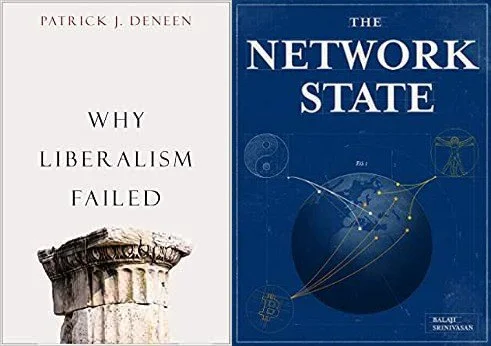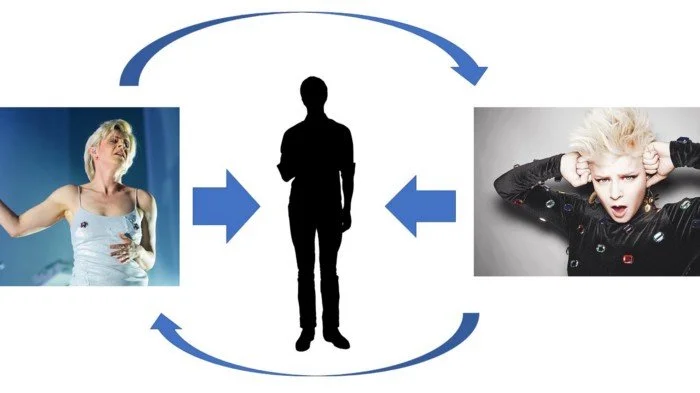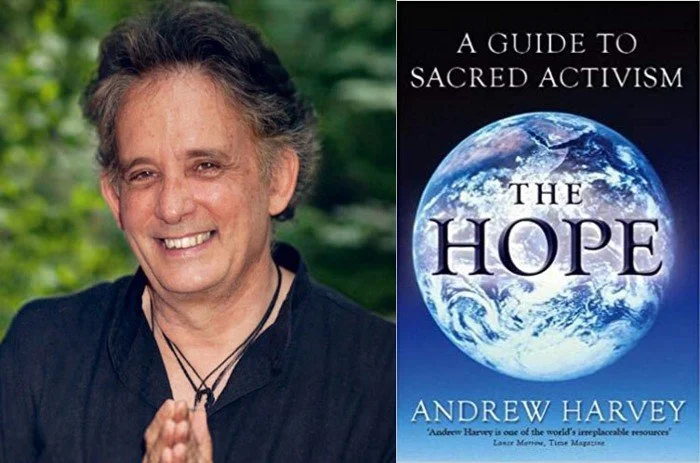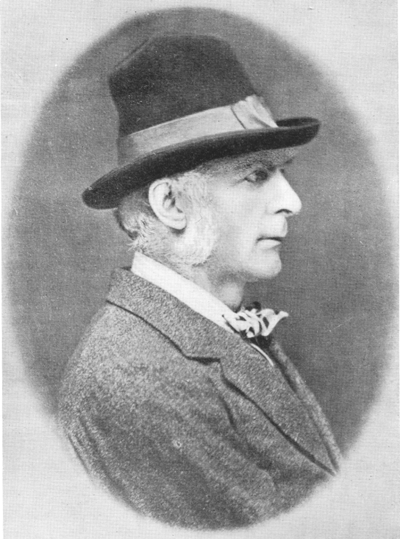This is an excerpt from my first book, Philosophy for Life and Other Dangerous Situations, which explores how people use practices from ancient Greek philosophies in modern life.
Read MoreWhat do you get if you cross the Diagnostic and Statistical Manual with High School Musical? TikTok! Occasionally some data appears that looks so awful it makes you do a doubletake. That was the case for me this week, when the Centre for Disease Control released data suggesting that American teen girls are ‘engulged in a wave of despair and violence’. Apparently 59% of teenage girls felt persistently sad or hopeless, and one in three considered suicide.
Read MoreIt’s every liberal parent’s nightmare. One day they happen to glance at their 14-year-old son’s laptop, and they see he is watching videos by Andrew Tate, the mullah of misogyny. They start to notice red flags in their son’s conversation: ‘bitches’, ‘choke-holds’, ‘feminism is cancer’, ‘Hitler wasn’t all bad’. Could their sweet little Quentin have been radicalized by the online far-right manosphere?
Read MoreKetamine clinics are booming across the US. According to psychedelic fund PsyMed, there were around 20 ketamine clinics in 2019. By the end of last year, there were reportedly over 600 independent ketamine clinics, as well as chains like Mindbloom, Field Trip and Delic with multiple clinics and home delivery services.
Read MoreThis is a story about dangerous ideas, and words’ magical power to heal and to harm. It’s about AI, Charles Manson, dubstep, Neo-Nazis, occultism, and a lot of amphetamine, but it’s mainly about Nicholas Land.
Being an entrepreneur is arguably the highest status job in the world at the moment. In the 1960s, it was the rock star. In the 1980s-1990s, investment bankers were the ‘masters of the universe’, the object of cultural fascination (and loathing), depicted in books like Bonfire of the Vanities or American Psycho. Now? No one could give a crap about investment bankers — they’re souped-up traders who bet with other people’s money and the only thing they invent are bullshit derivatives. But the entrepreneur? The ‘founder’? All kneel before their genius.
Read MoreAt the moment I live in a town in Costa Rica called La Fortuna. There was nothing much here apart from farming until the 1980s, when the nearby volcano of Arenal erupted, and it kept on erupting for the next 20 years. Suddenly all the springs and rivers around Arenal warmed up and became thermal baths. There was a thermal bath boom, a spa-rush, as hotels and spas scrambled to grab access to the springs and sell it to tourists. Today, La Fortuna is one of the most popular towns in one of the most popular tourist destinations in the world. Everything is booming, until the volcano erupts again.
Read MoreIn 2015, Google engineer Anthony Levandowski started The Way of the Future, a church to worship super-intelligent AI. And now we have the Religion of the Future Police, began by former Google manager Malcolm Collins and his wife Simone.
Read MoreAnyone hoping to ‘solve’ the mental health crisis should think very carefully: am I going to make it worse? Unfortunately, every decade a new intervention becomes the hot new thing, the magic bullet that is going to save the world, and the people promoting it become wide-eyed evangelists. ‘We are saving the world! We are doing such important work!’ Such is their enthusiasm, they never stop to ask, ‘is it possible this intervention will harm some people?’
Read MoreThere are at least four definitions of ‘mindfuck’:
1) People fucking with other people’s sense of reality via disinformation or pranks for their own purposes (which could be to amuse themselves, to liberate other people, or to advance some other agenda)
For example: ‘Cambridge Analytica mindfucked the British voters over Brexit’
…
Read MoreMy girlfriend Kattya at a bookstore in Porto, Portugal
I quite often get asked for advice on bringing a book to market. I’ve written four books so far, and had very different experiences with each of them. My first book, Philosophy for Life and Other Dangerous Situations, took a long time to get published, but when it finally did (by Random House) I had the pleasant experience of it being a success — it was published in 25 countries and sales and publicity far exceeded my and the publishers’ expectations.
Read MoreIn 2016, while working on The Art of Losing Control, I conducted a survey on spiritual experiences. The results were interesting — 85% of participants reported having one or more such experience, but 72% said they thought there was still a taboo around such experiences.
Read MoreLast weekend I took part in the Beyond the Brain conference, run by the Scientific and Medical Network, a venerable organisation to which I’m proud to belong. Their annual conference gathers together leading scientists, philosophers and paranormal investigators who are committed to venturing beyond materialist theories of consciousness into a new post-materialist paradigm.
Read MoreThis book was born in March 2020, the month when the World Health Organisation declared Covid-19 a pandemic. I had been researching Aldous Huxley for a year or so, and was curious about his support for eugenics. I noticed other New Age thinkers also promoted eugenics in some form or another. I kept on following the thread, and ended up writing this project on ‘spiritual eugenics’.
Read MoreOnce upon a time there was an obscure mailing list. It only had about 100 people on it, yet in this digital village was arguably the greatest concentration of brain power since fifth-century Athens.
Read MoreThe accusation that ‘X is a eugenicist’ is thrown around a lot on Twitter these days, as a way to try and cancel someone.
Read MoreA new biography has just been published of the Huxleys — Thomas, the great Victorian man of science, and his grandson Julian, the great 20th-century public scientist. The book, by Professor Alison Bashford, is quite sympathetic to Julian, who would be cancelled today for his lifelong support for eugenics, if anything besides a Wetherspoons pub had been named after him.
Read MoreThis week the Challenging Psychedelic Experiences project launch our study of difficult psychedelic experiences and what helps people who have them.
The first step is this online survey.
Read MoreIn the 1970s, Timothy Leary, high priest of LSD, starting preaching a new gospel. He become obsessed with the idea of a hierarchy of different genetic castes spread throughout the Earth, at different levels of evolution, culminating in a super-caste of Californians destined to leave Earth and continue their evolution in space. He preached selective breeding to enhance intelligence, and even suggested Hitler was ahead of his time in his plan to breed ubermenschen.
Read MoreI feel about the monarchy like most British people — I don’t have a huge problem with it, except in egregious moments like Prince Andrew getting away with his various crimes, but I don’t have a huge love for it either. The Queen has ruled my entire life, largely invisibly, so the monarchy is something I’ve largely taken for granted, like Thought for the Day on BBC Radio 4 — kind of weird, but not that big a deal either way.
Read MoreIt’s been a strange week. On the one hand, it’s given me a sharp sense of the limits of human intelligence and our capacity to govern ourselves. In eastern Europe, an ape in a suit murders hundreds of thousands to expand his territory by a few miles. In the UK, a clown exits 10 Downing Street, and a goose enters. The goose confronts the climate and energy crisis and declares the solution is…fracking.
Read MoreThis month my colleagues and I are launching the Challenging Psychedelic Experiences research project. It will conduct research into difficult psychedelic experiences (ie experiences that lead to difficulties lasting longer than a day) and what helps people deal with them. You can find out more about the project here.
Read MoreThis is the text of a talk I gave at Medicine festival in August 2022, summarising research I and others have done in the last three years on conspiracy thinking in New Age spirituality.
I’m going to talk about ‘conspirituality’ — the overlap between new age spirituality and conspiracy thinking, especially during the pandemic
Read MoreIn Chinese mythology, there are five islands in the Bohai Sea, inhabited by immortal beings who have discovered the elixir of life. Many have searched for the islands, but no one have yet found them. I came close, however, four years ago this very week, when I travelled deep into the Nevada desert, to go to Burning Man.
Read More‘You went into psychiatry to try and cast light on the mystery of suffering. Did it?
‘Not really. It’s a theological question, you can’t expect medicine to answer it.’
RD Laing, interviewed near the end of his life.
In this article I’m going to look at definitions of ‘psychedelic integration’ and suggest that philosophy and theology inevitably play a role in the evaluation of the truth and wisdom of post-trip beliefs.
Read MoreI’ve spent the last five days at Esalen, the famous spiritual workshop centre on the coast of Big Sur in northern California. I was invited to take part in a seminar on the ‘superhumanities’ at Esalen’s centre for research. I’ve been wanting to visit Esalen for years, and it hasn’t disappointed.
Read MoreThis week I got into an argument on Twitter. That’s quite rare for me, these days, but still happens occasionally. I tweeted something about the damage Trump has done to democracy, globally, and an account called ‘Behold Retreats’ tweeted back that democracy is a sham.
Read More‘Do you really want to be perfectly well?’ So begins a tantalizing advert in Good Health magazine in 1905. It invited the reader to the Battle Creek Sanitarium in Michigan, where countless specialists are ‘studying this one thing alone — how to get well and how to stay well.’
Read MoreThe 20th century was an extraordinary moment in Hinduism’s encounter with the West. For centuries, Hinduism had not expanded beyond India’s borders. Instead, India was colonized by Muslim rulers in the 16th century and invaded by Christian missionaries in the 19th century. But this one-way traffic changed on September 11 1893, when a 30-year-old swami called Vivekananda stepped on to the stage at the Parliament of the World’s Religions in Chicago, and stole the show, presenting India as a land of unique tolerance and spirituality.
Read MorePeople sometimes ask me for writing and publishing advice. My main advice would be to find something else to do. This is a terrible way to make a living. The average book sells less than 500 copies, and authors typically make 10% of the price of each book sold, so at 50p a copy you’ll probably make £250 for your precious work. Might as well just give blood, it’s a quicker way to make money, and probably helps more people. But people still feel drawn to write, as I do.
Read MoreThe men of the New Republic will not be squeamish…in facing or inflicting death, because they will have a fuller sense of the possibilities of life than we possess’. HG Wells, Anticipations (1901)
Read MoreIn 1879, in Breslau, a group of idealistic young Germans gathered round an oak tree at midnight to swear an oath. They swore to do everything they could to return the German race to the glories of its Teutonic past, and to found a utopian commune. A young man called Alfred Ploetz, 19, was chosen to be its future president.[1]
Read MoreThis is the latest entry in my Spiritual Eugenics project.
It feels taboo to read Mein Kampf. It is ‘literature’s only unmentionable work’, in Karl Ove Knausgard’s phrase. You download it and think, ‘I must be on some FBI list now’. Nazism still inspires hate-crimes and murders, like the Buffalo shooting. It’s the extreme opposite of modern liberalism — in place of diversity, equality and minority rights, it preaches white supremacy and rule of the strong over the weak.
Read MoreIn previous chapters of the spiritual eugenics project we have ambled down relatively unpopulated lanes of historical research. Now, we emerge onto a daunting autobahn: Nazism. No topic has been more pored over by historians. And there are no more awful events in human history than the Nazis’ programme of mass murder.
Read MoreThe Stoic philosopher Epictetus told his students that the wise man “keeps guard against himself as his own enemy, and one lying in wait for him”. This is a view of human folly shared by the rather younger field of behavioral economics. As James Montier, behavioral economist and member of GMO’s asset allocation team, puts it: “Your worst enemy when it comes to investment is yourself.”
Read MoreLast month Fox News presenter Tucker Carlson released a TV series called The End of Men, warning that American men were becoming effete, flabby and sterile. Civilization is descending into chaos, the series suggests, but that’s OK, because ‘hard times produce strong men’.
Read MoreI’d never heard of starseeds before one of them stormed the Capitol building in DC on January 6 2021. In the days after, I was researching Jake Angeli, the ‘Qanon shaman’, and discovered he ran something called the ‘Starseed Academy. Like other ‘starseeds’, Jake thinks he is a highly evolved soul from another planet. I wondered what a psychedelic hippy alien was doing mixed up in a quasi-fascist insurrection.
Read MoreWestern culture urgently needs to improve its cultural resources to help people make sense of ecstatic experiences. Evidence suggests that more and more people in western culture are having and seeking ecstatic experiences, because of the growing popularity of psychedelics and contemplative practices like meditation and yoga. However, we have scant cultural resources for making sense of such experiences.
Read MoreBut we all see the narco economy through myths, or what one writer called the ‘narco-imaginary’. I’ve been watching the Netflix series, Narcos, which brought narco culture to millions of viewers. As I watched series after series, I wondered: how true is the version of history that Narcos and Narcos: Mexico presents to us?
Read MoreWhat happens when a world leader falls for crackpot philosophy? We’re going to examine a movement known as Cosmism, which appeared in late 19th century Russia and the early Soviet Union. It set itself the grand task of steering evolution to create immortal, cosmic superbeings. We’ll also look at how this fanatic philosophy influenced Putin, and may have helped inspire the Kremlin’s fledgling eugenics programme.
Read MoreThe ‘religion’ of eugenics originated in the UK but Britain never passed a law legalizing involuntary sterilization of those deemed unfit. Instead, the UK exported eugenics around the world via events like the first international eugenics congress of 1912. Countries from Brazil to Japan would introduce eugenic laws, and no country was more aggressive in its eugenic policies than the United States.
Read MoreIn this chapter, we will look at how Julian Huxley and his peers developed the religious creed which he would later call Transhumanism, and how their visions of scientific utopia inspired his brother’s humorous novel, Brave New World.
Read MoreIf spirituality is a new religion which arose in the 19th century, then right now feels like the Reformation. It’s a moment of disenchantment, scepticism, criticism, iconoclasm and denunciation. Within the last three years, many people within New Age spirituality have spoken up against some of the problems within the culture, from conspirituality to grifting to psychedelic abuse.
Read MoreTrigger warning — what I have to say this week is on the subject of rape and sexual violence.
One of the big eye-openers for me in the last few years has been realizing how many women I know have been raped. Either date rape, or sexual abuse when they were younger, or random acts of sexual violence.
Read MoreThis is the latest entry in my ‘Spiritual Eugenics’ project, which explores the overlap between New Age spirituality and eugenics. For a definition of these terms, an introduction to the project, and more articles from it, go here.
In the next three articles, we’re going to meet the most important family for this topic — the Huxleys.
Read MoreI don’t know about you, but I’ve been feeling quite down the last few days. So, as a change from doomscrolling, I am going to write about two pop songs that I love, both by Robyn: Dancing On My Own, and Call Your Girlfriend.
Read MoreThe West should resist any calls to directly engage Russia in war, while supporting Ukraine with military and financial assistance. Let Putin reap the reward of his folly, and suffer the domestic consequences.
Read MorePerson A, one one side of you, says this:
‘Life-outcomes are determined by your social class’.
Person B, on the other side, says this:
‘Life-outcomes are determined by your genes’.
Make a guess as to the politics of Persons A and B.
Read MoreI received what you could describe as a western elitist education. I went to Eton College, the 500-year-old private school in the UK whose pupils included Boris Johnson, Prince William, and everyone from Aldous Huxley to Percy Shelley. Then I went to Oxford University.
Read MoreBritish geneticist Adam Rutherford has a new book out, called Control, about the history of eugenics and how it might or might not come back in the 21st century. As regular readers know, I’ve been researching and writing about eugenics myself for the last two years — you’re probably sick of it by now! — so I read Rutherford’s book to learn and review.
Read MoreI’ve been reading Erik Davis’ magnum opus, High Weirdness. Davis is the pre-eminent chronicler of Californian spirituality, and this book masterfully explores a particular scene — the Californian counter-culture in the 1970s, when hippy optimism curdled into paranoia and conspiracy theories, and everyone suspected everyone else was a narc.
Read MoreIt strikes me how much of my life happens to me, rather than occurring through a well-thought plan. My life took a major turn through a psychedelic accident. It then took another turn through a skiing accident, which led to a near-death experience. I called one of my books ‘an accidental ayahuasca adventure’, and I’ve also written ‘I went to Burning Man by accident’. What does this say about me, the accidental philosopher, simply reacting to life rather than aiming for a long-term goal?
Read MoreIn 1921, the British psychologist William McDougall declared:
Read MoreI have two hobbies — psychical research and eugenics. So far as I know, I am the only person alive today who takes an active interest in both these movements. [‘The need for psychical research’]
The Spiritual Eugenics project explores the overlap between New Age spirituality and eugenics (for a definition of those terms go here).
My thesis is that, in New Age teachings, one often meets the idea that a spiritual elite are evolving into superhumans, while others are failing the evolutionary test and these failures should perhaps be sterilized or even exterminated.
Read MoreThis is the seventh entry in my spiritual eugenics series, which explores the overlap between eugenics and New Age spirituality. You can find the whole series here.
You probably haven’t heard of Edward Bulwer-Lytton. If you have, it’s likely because he was the author of supposedly the worst ever opening sentence of a novel: ‘It was a dark and stormy night’ — a line so cringe, it’s inspired an annual prize for bad writing.
I confess I have become more cynical this last two years, particularly about my culture — ie New Age spirituality.
If someone calls themselves ‘spiritual’ these days, sadly it’s usually short-hand for ‘anti-vax, anti-science, a sucker for conspiracy theories or snake oil health remedies, with an inflated sense of their own spiritual advancement and expertise (particularly with regard to healing), combined with actions that actively harm others, out of selfishness or simple cluelessness’.
Is that too harsh?
Read MoreThis is the latest chapter in my project to explore ‘spiritual eugenics’. It looks at occult eugenics in the practices and books of members of the Hermetic Order of the Golden Dawn, a very influential occult society of the late 19th century. Its members believed they could use sex magic to engineer the incarnation of highly-evolved beings — an idea which would appear in later fantasy fiction, including Frank Herbert’s Dune.
Read MoreIn 1883, the same year that Francis Galton coined the word ‘eugenics’, a strange religious text was published, announcing the coming of a new type of human. The grand announcement went completely unnoticed at the time, and yet it would capture the imagination of the world in the coming decades. The book, of course, was Friedrich Nietzsche’s Thus Spake Zarathustra.
Read MoreOn the 18th of January, 1874, a remarkable dinner party took place at the London home of Erasmus Darwin, older brother of naturalist Charles Darwin. The guests included Charles Darwin, the novelist George Eliot, a young classicist named Frederic Myers, and Darwin’s cousin, the statistician Francis Galton.
Read MoreThis month, Los Angeles finally opened a museum for the movies. It’s telling that it took LA over a century to open a commemoration of its greatest achievement — California has never been much for dwelling on the past. Yet I wonder if the opening of the museum is also something on a tombstone, marking the end of the era when Hollywood ruled the world.
Read MoreThis week, psychedelic scientists and investors converged in Miami for the Wonderland conference. One of the panels was on the ‘shamanic approach to investing’. There, spiritual healer and financial advisor Sylvia Bentino said she’d had a vision on ayahuasca that cryptocurrency was going to change the world.
Read MoreIn 1967 Joan Didion went to San Francisco to cover the hippy scene in Haight Ashbury. After spending weeks hanging out with the hippies and flower people, she didn’t feel she ‘had’ the story, but she filed it anyway, and the essay became a classic of New Journalism and a famous takedown of vacuous spirituality, called ‘Slouching Towards Bethlehem’.
Read MoreThis is the third entry in the Spiritual Eugenics project.
In 1859, Charles Darwin published On the Origin of Species. It was an epochal moment for western culture. Darwinism challenged the old faith of Christianity, but it also created new faiths, new ‘science-religions’, new mutations of evolutionary ethics, politics and religion.
Read MoreAaron Beck, who died today aged 100, was the founder of Cognitive Behavioural Therapy (CBT) — arguably the most influential and ubiquitous form of talking therapy today, one in which the NHS has put billions of pounds. CBT personally helped me to recover from social anxiety in the early Noughties.
Read MoreLast week I drove to Sedona, in Arizona, to find out how conspirituality has affected the New Age capital of the United States.
Why did this little town of 10,000 people become such a New Age Mecca? It’s in a gorgeous location, hidden away beneath giant red-rock sandstone protrusions, like alien vessels from an ancient civilization.
Read MoreThe aim of the ‘Spiritual Eugenics’ research project is to explore the overlap between New Age spirituality and eugenics. It will explore how New Age spirituality adapted Darwin’s theory of natural selection into a theory of the ‘spiritual evolution’ of a new species of superbeings, a master-race.
Read More





































































